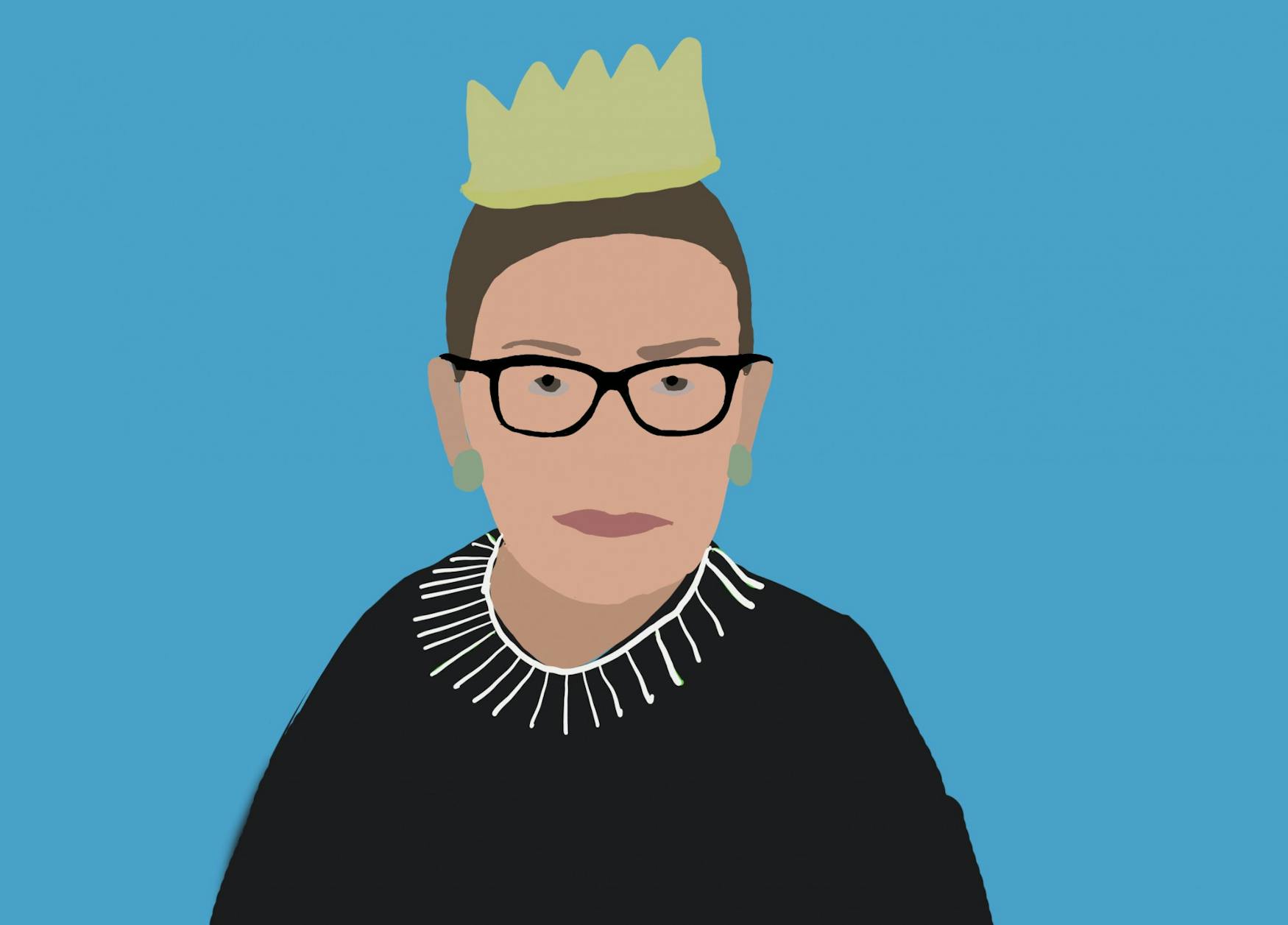RBG Is One of My Heroes
Justice Ruth Bader Ginsburg passed away on the first night of Rosh Hashana. Having no access to technology because of my religious observance, a friend notified me of her passing by a friend at a socially distanced service Saturday afternoon. It was not until Sunday morning — still with no access to technology — that I was able to read the full story from the newspapers my aunt and uncle brought me. It is very possible that I would not have been aware of the passing of one of my heroes until two days afterward.
Justice Ginsburg taught me that women are powerful. She taught me that women’s rights are human rights. RBG taught me the power of dissent. She taught me that I can be proud as a Jewish woman.
Justice Ruth Bader Ginsburg was born on Mar. 15, 1933. She earned her bachelor’s degree from Cornell University and went on to marry Martin “Marty” Ginsburg in 1954. In 1955, she gave birth to their first daughter a short time before she enrolled at Harvard Law School, where she was one of the few women in her class. Justice Ginsburg told a story from her first year of law school where the Dean invited her and the other eight women in the class over for dinner, and were asked to “justify taking the place of a man.” When Marty was diagnosed with testicular cancer, Ruth attended both their classes in order to keep him up to speed.
In 1970, she co-founded the Women’s Rights Law Reporter, the first woman-focused law journal in the United States. She became the first tenured woman at Columbia Law School and she also co-founded the Women’s Rights Project at the American Civil Liberties Union. Throughout her time at the ACLU, she focused on establishing and expanding women’s rights under the 14th Amendment. In fact, in 1971, she wrote a brief in the case that expanded the Equal Protection Clause of the 14th Amendment to women.
In 1980, President Jimmy Carter nominated Justice Ginsburg to the D.C. Circuit Court of appeals, where she served until 1993 when she was nominated by President Bill Clinton to serve as an Associate Justice of the Supreme Court of the United States. She was confirmed 96-3 and became the second-ever woman to serve on the nation’s highest court. She served on the court from 1994 until her death, hearing cases for over 20 years.
There is not enough to hold each of Justice Ruth Bader Ginsburg’s accomplishments. One of her most famous opinions was in the United States v. Virginia Military Institute. The decision she authored declared the male-only admissions policy at the Virginia Military Institute unconstitutional. This was one of many cases that inched our country toward equality for the sexes. Women can thank Justice Ginsburg for not needing their husbands or fathers to sign off before they can get a credit card or a loan from a bank. More recently, Justice Ginsburg has been most famous for her fiery dissents. They were an inspiration to so many young women, including me. I was able to see that one can effect change no matter what. In fact, one of Ginsburg’s dissents led to the Lily Ledbetter Fair Pay Act, signed by President Barack Obama in 2009.
Early on in Obama’s first term, when Democrats held the Senate and the White House, many in the Democratic party urged Justice Ginsburg to step down in order for Obama to nominate a younger person to the nation’s highest court. RBG refused. There is no way to know what would have happened had Justice Ginsburg stepped down. However, I understand and can appreciate the reasoning behind the refusal. She was able to empower a generation of young women, including me, who grew up learning what her special dissent collar meant, and she served as an inspiration every time she came back to work after her battles with cancer.
It is also worth mentioning that the Democratic Party as a whole has failed in past elections to reinforce in voters’ minds the importance of the Supreme Court. If the justice’s death does nothing else, it has become a reminder to Democratic voters the value of the Supreme Court. In the wake of Ginsburg’s death, Democratic Senate candidates were able to raise millions of dollars in an effort to take back the Senate. I will be proudly voting for the Biden/Harris ticket to protect the rights that Justice Ginsburg was crucial in implementing.
In 2019, as part of my high school graduation ceremony, all the students were asked to choose a quote from a Jewish person or text and relate it to our time in high school. I chose this quote from Justice Ginsburg that reads, “Fight for the things you care about but do it in a way that will lead others to join you.” One of my classmates also used a quote from her. When asked how many women would be enough on the Supreme Court, RBG answered, “when there are nine.” I have always felt proud that Justice Ginsburg was a Jewish woman. I proudly wear an RBG sweatshirt, the RBG shirts I have gotten as gifts, and her two quotes that adorn my water bottle and my computer. I am part of a generation of women that owe so much to this woman and proudly display it in our clothing, jewelry, stickers, and, now, masks. She will always be Notorious RBG in my mind.
Zichrona L’vracha, may her memory be a blessing (may her memory be a revolution).



Please note All comments are eligible for publication in The Justice.